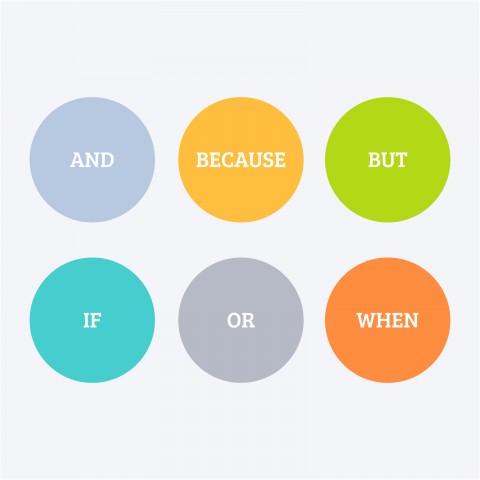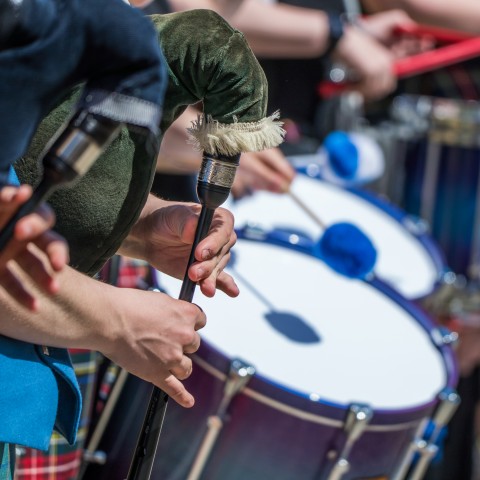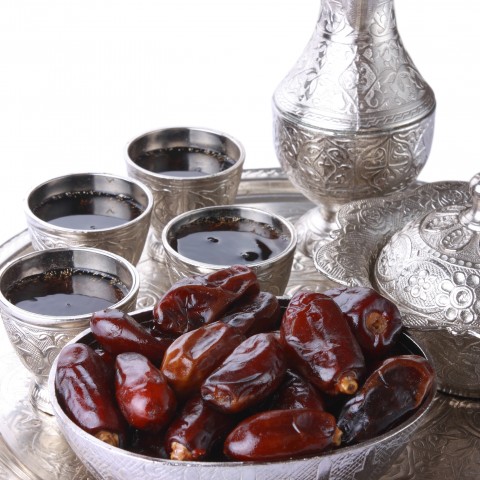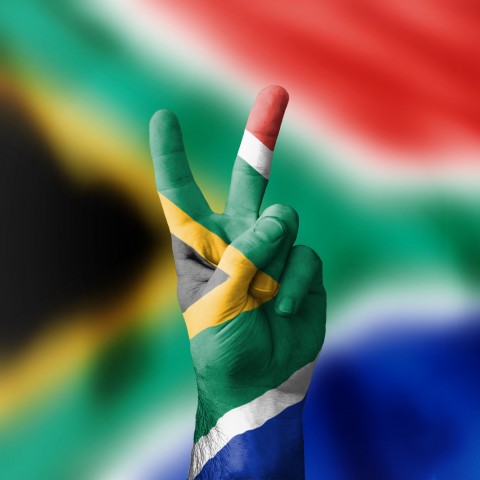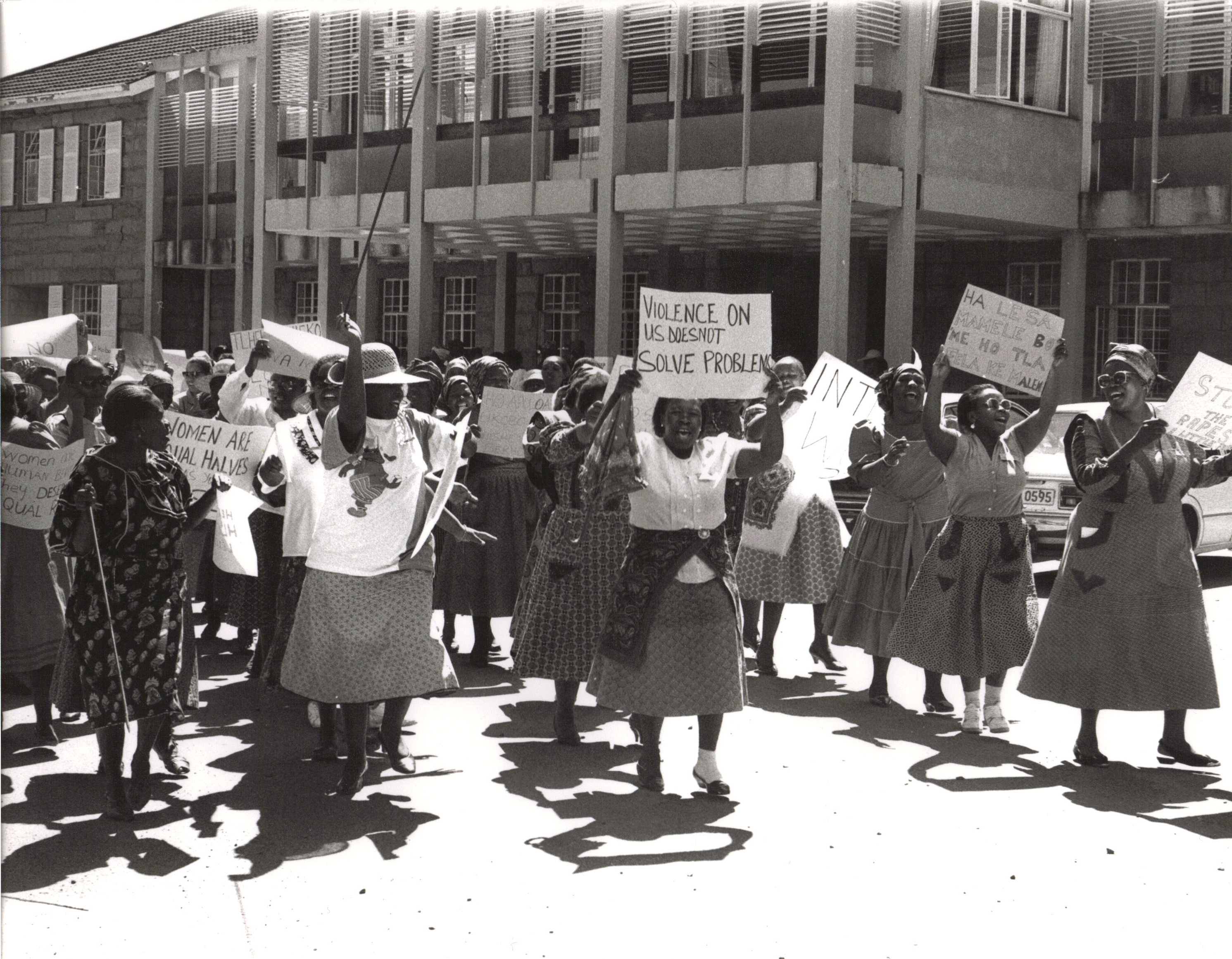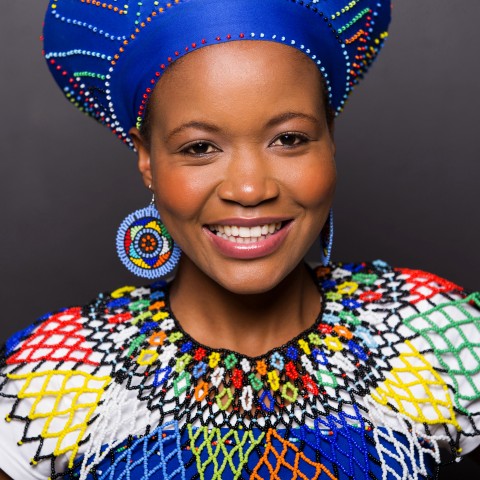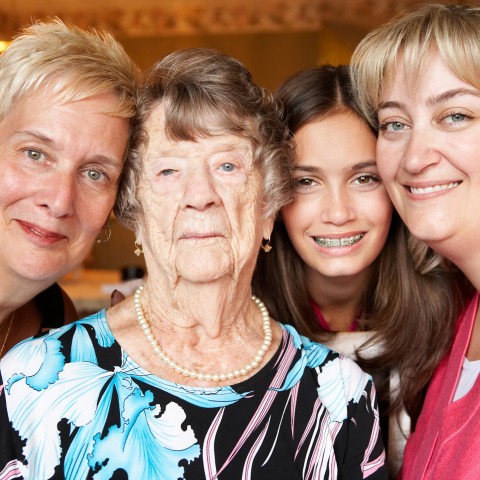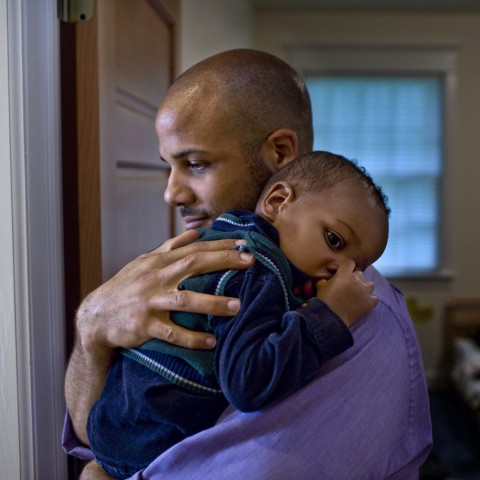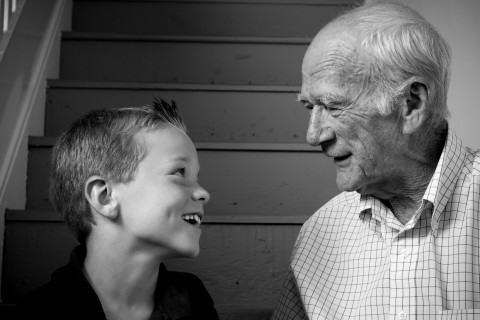Before learning about Afrikaans rules for conjunctions, do you know what a conjunction is?
Conjunctions are the type of words in a language that “glue” two words, phrases, and sentences or clauses together. For instance:
1- Joining Words: “Pepper and salt.” Here, and is the conjunction that joins the words “pepper” and “salt.”
2- Joining Phrases: “…in the air but not too high.” In this sentence, the conjunction but joins the two phrases “in the air” and “not too high.”
3- Joining Clauses/Sentences: “The man walks into the room as she gets ready to leave.” In this instance, as joins the two clauses “The man walks into the room” and “she gets ready to leave.”
Afrikaans conjunctions (called voegwoorde in Afrikaans) obviously have the same functions, but in this article, we’ll focus on how they join sentences or clauses. To master these easily, join us at AfrikaansPod101!
Before we go any further, a note on Afrikaans conjunction groups.
There are three groups of Afrikaans conjunction each distinct in the way they modulate the sentences they join. There are two key things to remember about conjunctions in Afrikaans rules when it comes to groups:
1) Of the two sentences it links, an Afrikaans conjunction mostly modulates or changes the second sentence.
2) The change it brings about mainly has to do with the position of the verb in this sentence.
Also remember: Afrikaans grammar can get very complex! There are nearly always exceptions to every rule, and the ones we explain here are very simple and straightforward. For instance, some of these conjunctions get used only when you’re referring to the past (using past tense verbs), and understanding that is a whole different kettle of fish!
However, for the purpose of learning to speak Afrikaans, there’s no need to get too tangled up in the grammar. Get comfortable with the basics first, and soon you’ll be able to help yourself in Afrikaans.
Let’s take a look at the different Afrikaans rules for conjunctions in each group, as well as a list of Afrikaans conjunctions for each.

Table of Contents
- Afrikaans Conjunctions Group 1
- Afrikaans Conjunctions Group 2
- Afrikaans Conjunctions Group 3
- AfrikaansPod101 Can Help You Master Your Afrikaans Conjunctions with Ease!
1. Afrikaans Conjunctions Group 1
This one’s easy—these conjunctions just slap two sentences together and nothing changes about either one. For example:
Afrikaans: Die nag is donker maar die son sal weer opkom.
Translation: “The night is dark but the sun will rise again.”
Afrikaans: Sy koop kos want sy is honger.
Translation: “She buys food because she is hungry.”
Afrikaans: Of hy gaan val, of hy gaan vlieg.
Translation: “Either he’s going to fall, or he’s going to fly.”
Afrikaans Conjunctions Group 1 Examples:
Maar: “But”
En: “And”
Of: “Or”
Want: “Because”
Of…of: “Either…or”
Nog…nog: “Neither…nor”
Sowel as: “As well as”
Dog: “Yet” (As in: “You have your phone with you, yet you don’t answer it when it rings.” Dog is very close in meaning to maar, but not quite, such as is the case with “but” and “yet.” )
Since this one is so simple, why not practice your Afrikaans conjunctions right away? Show us how you use these Group 1 conjunctions by joining two Afrikaans sentences in the comments section!
2. Afrikaans Conjunctions Group 2
When a conjunction from this group is used, it changes the structure of the second sentence. The verb in the second sentence now moves to land straight after the conjunction.
Here are some Afrikaans conjunction examples in sentences for this group:
Sentence 1: Christine vertrek Skotland toe baie vroeg moreoggend.
Sentence 2: Sy slaap oor op die lughawe.
Translation: “Christine will be leaving for Scotland very early tomorrow morning. She will be sleeping over at the airport tonight.”
These two sentences get joined with the Afrikaans conjunction daarom (therefore):
Joined sentences: Christine vertrek Skotland toe baie vroeg moreoggend; daarom slaap sy oor op die lughawe vanaand.
Translation: “Christine will be leaving for Scotland very early tomorrow morning; therefore, she’ll be sleeping over at the airport.”
Can you see how the verb (slaap/sleep) in the second sentence moved position? It now finds itself right next to the conjunction. Furthermore, this particular conjunction is often used with a semicolon or a comma.
Another example:
Sentence 1: Trek jou warmste jas aan.
Sentence 2: Jy gaan koudkry.
Translation: “Put on your warmest coat. You will get cold.”
These two sentences get joined with the Afrikaans conjunction anders (otherwise).
Joined sentences: Trek jou warmste jas aan, anders gaan jy koudkry.
Translation: “Put on your warmest coat, otherwise you will get cold.”
Afrikaans Conjunctions Group 2 Examples:
Dan; daarna: “Then”
Dus; daarom; derhalwe: “Therefore”
Nogtans; nietemin: “Nevertheless”
Anders: “Otherwise”
Gevolglik: “As a result”
Al: “Although”
Toe: “Then”
Tog: “Even so”
Buitendien: “Besides”
3. Afrikaans Conjunctions Group 3
When one of these conjunctions are used to join two sentences, the verb gets shy and does the opposite of Group 2 verbs; it moves as far away as possible from the conjunction, toward the end of the (second) sentence.
Like this: (The verb in red gets to move.)
Sentence 1: Sy mis hom baie.
Sentence 2: Sy sien hom so min.
Translation: “She misses him a lot. She gets to see so little of him.”
These two now get joined by the Afrikaans conjunction omdat (because):
Afrikaans: Sy mis hom baie omdat sy hom so min sien.
Translation: “She misses him a lot because she gets to see so little of him.”
Again, the conjunction changed the sentence structure, as the verb sien (sees) scuttled right to the end of the sentence.
Another example:
Sentence 1: Neem genoeg geld saam.
Sentence 2: Jy kan jouself geniet.
Translation: “Take enough money with you. You can enjoy yourself.”
The conjunction sodat (so that) joins the two sentences here. Watch how the modal verb kan (can) and the transitive verb geniet (enjoy) change positions.
Afrikaans: Neem genoeg geld saam sodat jy jouself kan geniet.
Translation: “Take enough money with you so that you can enjoy yourself.”
When Group 3 Afrikaans conjunctions are used at the start of a sentence, however, it changes both sentences with verb movements.
For instance:
Sentence 1: Ons kan gaan koffie of tee drink.
Sentence 2: Ek moet my werk klaarmaak.
Translation: “We can go drink coffee or tea. I need to finish my work.”
Starting with the conjunction voordat or voor (before), both sentences are modulated like this:
Afrikaans: Voordat ons koffie of tee kan gaan drink, moet ek my werk klaarmaak.
Translation: “Before we can go have coffee or tea, I need to finish my work.”
Afrikaans Conjunctions Group 3 Examples:
Dat: “That”
Omdat: “Because”
Totdat: “Until”
Voordat: “Before”
Nadat: “After”
Sedert: “Since”
Sodat: “So that”
Wat: “Which”
Wie: “Whom” / “Who”
Terwyl: “While”
Alhoewel: “Although”
Sodra: “The moment that”
Aangesien: “Seeing that”
Mits: “Provided that” / “On the condition that”
Tensy: “Unless”
Indien: “If”
Wanneer: “When”
Hoeveel: “How much”
Waar: “Where”
Hoe: “How”
Waarom: “Why”
Practice: Find the Afrikaans Conjunctions
So, now you got the basics down! Why not practice, and see if you can find the conjunctions (those connecting sentences or clauses) in this Afrikaans paragraph:
Dit is ‘n mooi oggend. Die bergtoppe lê toe van die mis maar die oseaan is oop. Terwyl sy aantrek, besluit sy om uit te gaan. Sy wil gaan koffie drink saam met Colleen. Sy sal dit doen, indien haar vriendin beskikbaar is. Tog, dis nog baie vroeg; daarom besluit sy om eers haar werk klaar te maak.
Translation: “It is a beautiful morning. The mountaintops are covered with mist, but the ocean is clear. While she gets dressed, she decides to go out. She wants to go have coffee with Colleen. She will do it, if her friend is available. However, it’s very early still, therefore she decides to first finish her work.”
Share in the comments all the examples of Afrikaans conjunctions you could spot!
Did you have trouble finding most of them? Feel free to reach out in the comments if you need clarification on any Afrikaans conjunctions rules or definitions.
4. AfrikaansPod101 Can Help You Master Your Afrikaans Conjunctions with Ease!
If your need to learn Afrikaans is urgent, consider investing in a personal online tutor, available to assist you in multiple ways! You’ll get, for instance:
- Personal interaction with your friendly, energetic AfrikaansPod101 teacher.
- Personal learning on the AfrikaansPod101 app, anywhere, anytime. Available for Android, iPhone, and iPad.
- Guidance and ongoing assessment so you always know what to study next.
- Your own, personalized learning program, based on your needs and expertly designed to have these met.
- Weekly assignments in reading, writing, and speaking, to perfectly hone your Afrikaans language skills.
- Continuous friendly feedback, answers, and corrections from your teacher, so you’re always improving!
- Badges for completed assignments to keep you motivated.
What’s not to love! Sign up with us now, and master those pesky Afrikaans conjunctions in no time.






